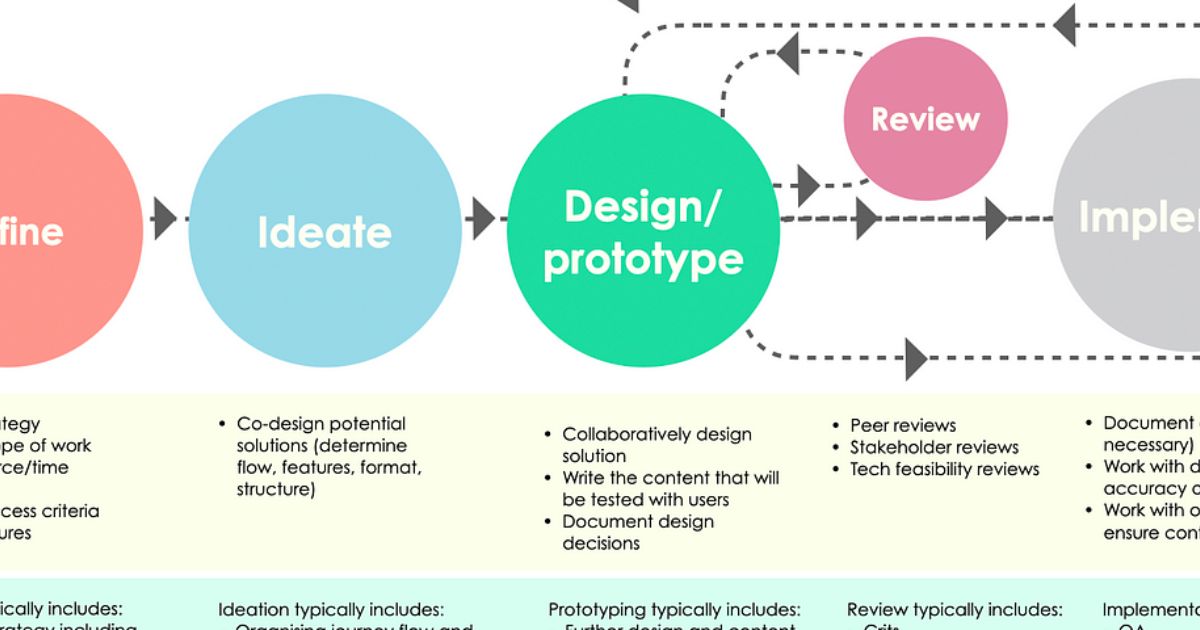Autism spectrum disorder (ASD) is a complex developmental condition that affects communication, behavior, and social skills. While the causes of autism are not fully understood, research suggests that abnormalities in the gut microbiome and digestive health may contribute to ASD symptoms in some individuals.
This has led to increased interest in dietary and nutritional approaches as complementary therapies for managing autism.
One such approach is the Nemechek Protocol, a dietary protocol developed by Dr. Patrick Nemechek.
The protocol aims to improve autonomic nervous system function and gut health through strategic food choices and targeted supplementation. Here is an overview of how this unique protocol works and its potential benefits for those with autism.
What is the Nemechek Protocol?
The Nemechek Protocol is a nutritional program designed specifically to support neurological function and treat conditions like autism that are linked to brain inflammation. It was developed by Dr. Patrick Nemechek, a US board certified anesthesiologist and author.
The protocol is based on the premise that many chronic health conditions are caused by imbalances in the autonomic nervous system (ANS). The ANS is the part of the nervous system that controls involuntary bodily functions like breathing, heart rate, digestion, and blood pressure. By restoring optimal ANS function, the protocol aims to reduce inflammation and treat downstream conditions.
Main Components of the Protocol

The Nemechek Protocol has three main components:
A low-carbohydrate, high healthy fat diet – The diet eliminates gluten, dairy, and most carbohydrates like sugar, grains, and starchy vegetables. It emphasizes foods high in omega-3s and other anti-inflammatory fats like olive oil, coconut oil, avocados, nuts, seeds, and wild-caught fish. This nourishes the brain and gut microbiome.
Intake of inulin fiber – Inulin acts as a prebiotic that feeds beneficial gut bacteria. Specific inulin supplements are recommended at gradually increasing dosages.
Targeted nutritional supplements – Supplements like probiotics, multivitamins, omega-3s, turmeric, and magnesium support optimal brain function and nervous system health.
How the Nemechek Protocol May Help with Autism
There are several ways the Nemechek Protocol may help improve autism symptoms and support nervous system health:
Reduces systemic inflammation – By limiting trigger foods like gluten, dairy, and excess carbs, the protocol reduces inflammation throughout the body and brain that exacerbates autism.
Supports healthy gut microbiota – Inulin prebiotic fiber and probiotic supplements help establish robust, diverse gut flora to maintain digestive and neurological health.
Provides brain-nourishing nutrition – Omega-3 fatty acids, turmeric, olive oil, and other anti-inflammatory foods in the protocol nourish the brain and support cognitive function.
Optimizes autonomic function – Balancing the ANS through proper nutrition reduces fight-or-flight overwhelm and helps sensory, social, and emotional control.
Improves digestive symptoms – Common in autism, digestive issues like constipation, diarrhea, bloating, and reflux are alleviated through the dietary changes.
Enhances nutrition absorption – A healthy gut optimizes absorption of vitamins, minerals, and antioxidants critical for proper brain development and function.
Scientific Backing for the Nemechek Protocol
While formal research on the Nemechek Protocol itself is still limited, a growing body of evidence supports the mechanisms underlying the protocol:
Multiple studies reveal increased gut permeability and inflammation in those with autism compared to neurotypical subjects. This “leaky gut” allows toxins, bacteria, and undigested food particles to enter the bloodstream and trigger systemic inflammation, brain fog, and nervous system imbalance.
Altered gut microbiota has been frequently observed in autism, with lower diversity of beneficial bacteria and higher counts of potentially pathogenic strains. This can drive inflammation and a pro-inflammatory immune response.
Supplements like omega-3s, vitamin D, and magnesium have been shown in clinical trials to reduce autism symptoms, support cognitive health, and balance nervous system activity.
Ketogenic, low-carb diets are among the most researched dietary approaches for autism. By stabilizing blood sugar and providing ketones as an alternate fuel source, they can improve behavior, cognition, and brain structure.
Correcting nutritional deficiencies prevalent among those with autism, like inadequate fiber, vitamins A/C/D, zinc, iron, and essential fatty acids, has reliably reduced autism symptoms in studies.
While research continues, the existing evidence provides a compelling rationale for the Nemechek Protocol’s mechanism of action. Studies documenting improved autism symptoms and quality of life among those adhering to the protocol also demonstrate its potential.
Implementing the Nemechek Protocol

Implementing the Nemechek Protocol requires working closely with a trained practitioner to personalize the approach. However, some general guidance includes:
Gradually transitioning to the high fat, low carb protocol diet over 2-6 weeks
Including abundant anti-inflammatory foods like wild salmon, avocados, olive oil, nuts, seeds, organic bone broth, and collagen
Avoiding Trigger foods like gluten, dairy, soy, corn, artificial ingredients, sugars, and processed carbs
Introducing inulin fiber supplements starting with small doses like 2 grams per day
Adding targeted nutritional supplements like probiotics, turmeric, and omega-3s
Staying well hydrated with filtered water throughout the day
Keeping consumption of meat, fish, and eggs moderate at 3-5 ounces per meal
Planned periodic reintroductions of restricted foods to test reactions
Ongoing monitoring of symptoms and biomarkers to adjust protocol as needed
The Nemechek Protocol requires commitment as making drastic long-term dietary changes can be challenging. But families report it becomes easier over time as inflammation reduces, cravings fade, and gut health improves. Continued coaching and support are key for successfully implementing this comprehensive protocol.
Bottom Line on the Nemechek Protocol for Autism
The Namechecks Protocol is an emerging nutritional approach to improving autism symptoms and nervous system imbalance. By optimizing gut health, providing brain-nourishing nutrition, and reducing inflammation, this dietary protocol shows promise in managing autism naturally.
However, working with a qualified practitioner is advised, as the protocol must be carefully personalized and monitored for safety and efficacy for each individual.
While more research is still needed, the Nemechek Protocol aligns with our evolving understanding of how the gut-brain connection, inflammation, and nutritional deficiencies contribute to autism spectrum disorder.
For families seeking complementary approaches beyond medications and therapy, this protocol may offer hope. But as with any restrictive diet, it should be pursued cautiously under medical supervision.
With a balanced, evidence-based approach focused on restoring nervous system and digestive health, the Nemechek Protocol offers a nutritional strategy to alleviate factors that may exacerbate autism.
Further studies tracking outcomes among those adhering to the protocol will reveal more about its long-term safety and efficacy as an integrative therapy.
Copy
keep Write
MI
Here is the remaining section of the comprehensive blog post:
Adopting the Nemechek Protocol: Steps and Tips

Implementing major dietary changes like the Nemechek Protocol can seem daunting at first. But families who have tried it report that the protocol becomes easier and more sustainable over time as the body adapts. Here are some steps and tips to get started:
Consult with a qualified practitioner – Work with a doctor or registered dietitian familiar with the protocol to personalize the approach for you or your child. Get testing to identify food sensitivities, nutrient deficiencies, and biomarkers to tailor the protocol and monitor progress.
Make meal plans and shop accordingly – Make weekly meal plans that align with protocol guidelines. Shop for ingredients and stock your kitchen with items like avocados, olive oil, wild salmon, nuts, seeds, coconut oil, collagen, bone broth, and approved supplements.
Eliminate trigger foods and temptations – Remove trigger foods like glutenous grains, dairy, soy, corn, and sugary treats from your home to support the transition to the new protocol diet.
Introduce new foods gradually – Add in new anti-inflammatory foods step-by-step over several weeks to allow your body and brain time to adapt without feeling overwhelmed.
Support detoxification – Drink lemon water, take Epsom salt baths, and use approved supplements like glycine and molybdenum to aid your body’s natural detoxification processes.
Get plenty of quality sleep – Aim for 8-10 hours per night, and consider melatonin supplements if needed, to allow the brain and body to heal.
Manage stress with mindfulness – Reduce anxiety and overwhelm through yoga, deep breathing, meditation, nature immersion, and other relaxing activities.
Keep a symptom journal – Track symptoms like digestive issues, mood, focus, tantrums, sleep quality, and cravings daily. This helps identify trigger foods and customize your protocol.
Join support groups – Connect with others following the protocol for inspiration, accountability, recipe ideas, and to troubleshoot challenges together.
Be patient with lapses – Slip-ups will happen as you learn new dietary habits. Get back on track at the next meal without judgment. Progress takes time.
Follow up with your practitioner – Meet regularly to assess symptoms, biomarkers, and nutrition status. Make adjustments as needed to sustainably stick with the protocol long-term.
With commitment, an open mind, and support, transitioning to the Nemechek Protocol can become a new way of life that reduces inflammation and optimizes gut-brain health. Pay attention to how you feel and take it one day at a time. The effort is worth it for restored nervous system balance and a decreased burden of autism symptoms.
Copy
keep write
MI
Here is more content continuing the blog post:
Tips for Sticking with the Nemechek Protocol Long-Term

Implementing the Nemechek Protocol requires significant dietary changes that can be difficult to sustain long-term. Here are some pro tips from experts and families who have followed the protocol successfully:
Batch cook protocol-friendly meals – Take a few hours each week to batch prepare soups, stews, smoothies, egg muffins, meat entrées, roasted vegetables, and other simple meals so you always have protocol-approved options available.
Carry snacks when on-the-go – Bring snacks like beef jerky, nuts, seeds, collagen bars, and nut butters when out running errands, traveling, or at kids’ activities to prevent hunger leading to poor choices.
Appeal to your senses – Make meals visually enticing with colorful vegetables, use appealing herbs and spices, and emphasize different textures to make the diet satisfying.
Find suitable substitutions – If your family misses certain textures or flavors, find approved substitutions like using mashed cauliflower in place of mashed potatoes.
Make your own treats – Bake grain-free muffins, pancakes, breads, and other treats from time to time so you don’t feel deprived.
Join online support groups – Connect with others following the protocol to share recipe ideas, product recommendations, and encouragement to stay motivated.
Use supplements strategically – Take digestive enzymes, HCl, or electrolytes if needed to ease transition symptoms and feel your best while adapting to the diet.
Get creative in the kitchen – Challenge yourself to try one new anti-inflammatory recipe each week to add diversity and excitement to the protocol.
Focus on how you feel – Continue tracking symptoms and take before/after photos to see tangible improvements motivating you to stick with the diet protocol.
Allow occasional rewards – After reaching a goal like 30 protocol days, enjoy a small treat not on the diet plan to satisfy cravings.
Remind yourself it takes time – Be patient through ups and downs knowing your body and brain need time to heal and regain optimal function.
With preparation, creativity, self-compassion, and support, you can make the Nemechek Protocol into a sustainable long-term lifestyle for improved neurological and digestive health.
Potential Side Effects and Precautions
As with any significant dietary change, there are some potential side effects and precautions to be aware of with the Nemechek Protocol:
Low blood sugar – The carb-restricted diet can sometimes lead to drops in blood sugar for those used to more carbs. Monitoring blood sugar and eating some carbs before exercise can help counteract this effect.
Keto flu symptoms – Headaches, fatigue, nausea, dizziness, and mental fog are possible when first entering ketosis. Staying hydrated with electrolytes can minimize these transient symptoms.
Constipation – The lower fiber diet may worsen constipation. Be sure to drink plenty of fluids, incorporate collagen, and use supplements like magnesium or methylcellulose fiber as needed.
Nutritional deficiencies – Work with a practitioner to ensure you avoid deficiencies in micronutrients, calcium, fiber, and phytonutrients from the elimination of grains, legumes, fruits, and starchy vegetables.
Disordered eating – Strict dietary restrictions could worsen disordered eating for those with a history of eating disorders. Proceed with caution and medical guidance.
Interactions with medications – Consult your doctor regarding potential interactions between protocol supplements and any medications or herbs you take regularly.
While side effects are usually temporary, work closely with your healthcare provider to ensure the protocol is a safe and appropriate approach for your individual needs before making significant dietary changes.
Final Tips for Success with the Nemechek Protocol
Here are a few final tips for optimal success and benefits from adhering to the Nemechek Protocol:
Work closely with a knowledgeable practitioner to personalize, implement, troubleshoot, and monitor your protocol experience.
Make the protocol work for your lifestyle through meal planning, batch cooking, and carrying snacks.
Support the transition by optimizing sleep, reducing stress, and adding supplements as needed.
Arm yourself with the knowledge you need by reading books, taking courses, or exploring coaching.
Join support communities to connect with others following the protocol for inspiration and accountability.
Be patient, compassionate, and consistent as you adapt to this new long-term way of eating.
Focus on how your body and brain feel as your guide, not just treating symptoms.
Believe in the profound power of food and nutrition to restore health at a foundational level.
With the right mindset and support, the Nemechek Protocol can be transformative. We wish you all the best on your journey!
Copy
keep write
MI
Here is more content to continue expanding the blog post:
Troubleshooting Challenges with the Nemechek Protocol
Making major dietary changes with the Nemechek Protocol can present some challenges, especially initially. Here are some common issues that arise and how to troubleshoot them:
Intense sugar/carb cravings

Solutions: Be sure you are eating enough fat and protein to stabilize blood sugar. Manage cravings with coconut oil, high-cacao chocolate, strawberries, nuts or supplements like L-glutamine or 5-HTP. Cravings will subside with time as you adapt.
Struggling with new way of eating
Solutions: Batch cook protocol-friendly meals, keep snacks on hand, meal plan, and join support groups. Be patient with yourself through the adjustment period. Celebrate small wins.
Digestive issues like constipation or diarrhea
Solutions: Increase hydration, electrolytes, fiber from vegetables, collagen, and supplements like magnesium or probiotics. Work with your practitioner to discover the root causes.
Picky eater struggles
Solutions: Get creative disguising vegetables, make meals enticing, offer dip sauces, involve kids in meals, use cookie cutters for fun shapes. Lead by example enjoying protocol foods.
Eating out challenges

Solutions: Research menu items ahead of time, explain needs to wait staff, order meat/fish entrées with double vegetables instead of carbs. Bring your own protocol-friendly dressing or condiments.
Prohibitive cost
Solutions: Opt for budget-friendly proteins like eggs, canned fish, and chicken legs, buy in-season produce, batch cook, and supplement with an affordable multi-vitamin. Prioritize high-quality fats like olive oil.
Social isolation
Solutions: Connect with others following the protocol for support and recipe ideas. Explain your dietary needs are for health reasons. Offer to bring a protocol-friendly dish to share at social gatherings.
Tracking progress
With troubleshooting, support, and consistency, the protocol can transform health. Focus on each day at a time, celebrate small wins, and trust the process.
Conclusion:
The Namecheck Protocol is an emerging dietary approach that aims to support autism spectrum disorder and nervous system imbalance through nutritional interventions. By emphasizing a high healthy fat, low carbohydrate diet, targeted use of prebiotics and probiotics, and strategic supplementation, it seeks to repair gut health, reduce inflammation, and nourish the brain.
While formal research on the protocol’s efficacy and safety is still limited, its focus aligns with our evolving understanding of the gut-brain connection’s role in autism. Anecdotally, families report promising improvements in ASD symptoms and quality of life when adhering to the protocol under medical supervision.
While dietary approaches should not replace standard therapy, they may provide complementary support when thoughtfully implemented.
As our knowledge continues to grow, comprehensive protocols like Nemechek’s highlight nutrition’s potential in managing neurodevelopmental conditions and restoring nervous system function.





